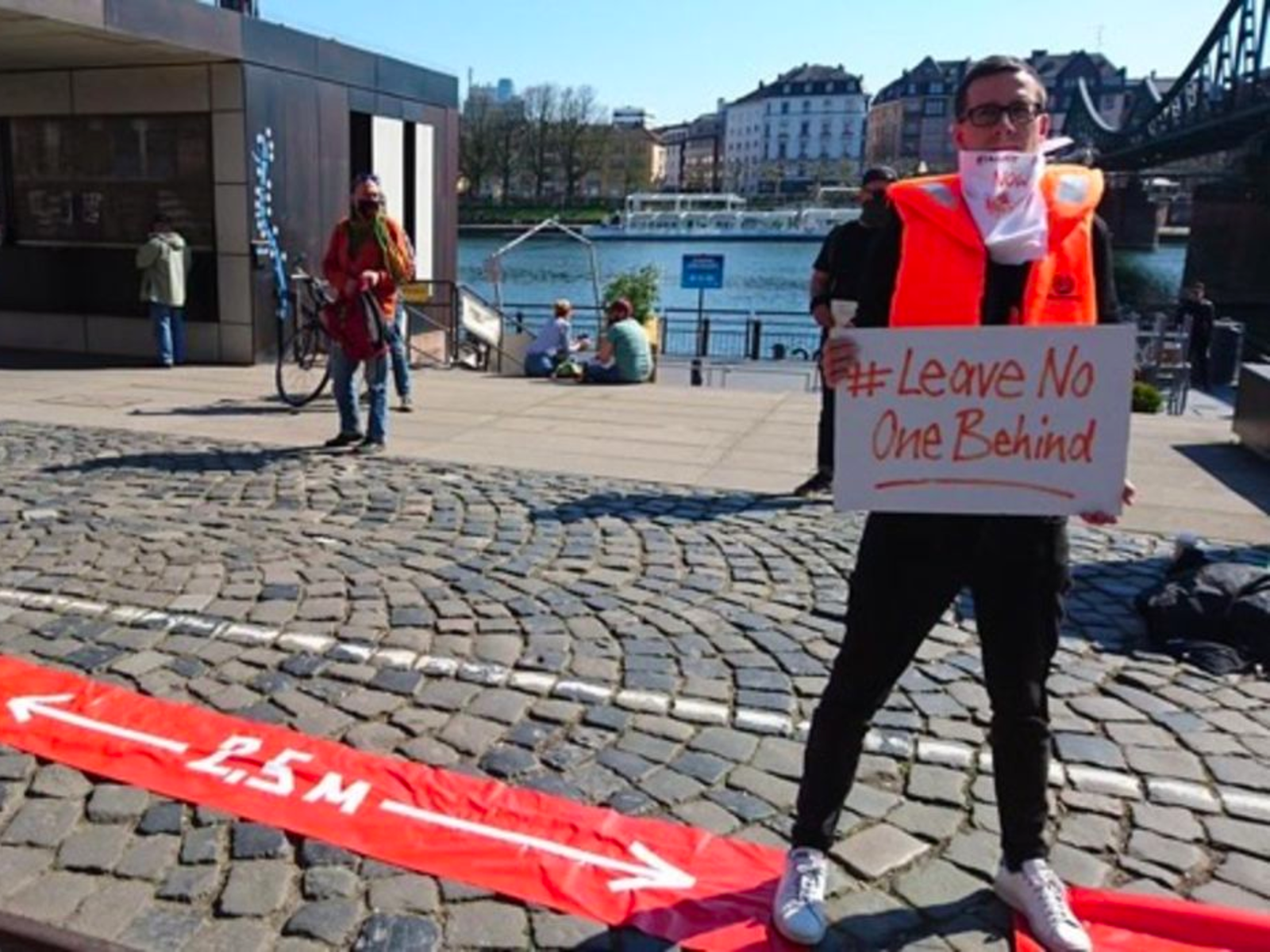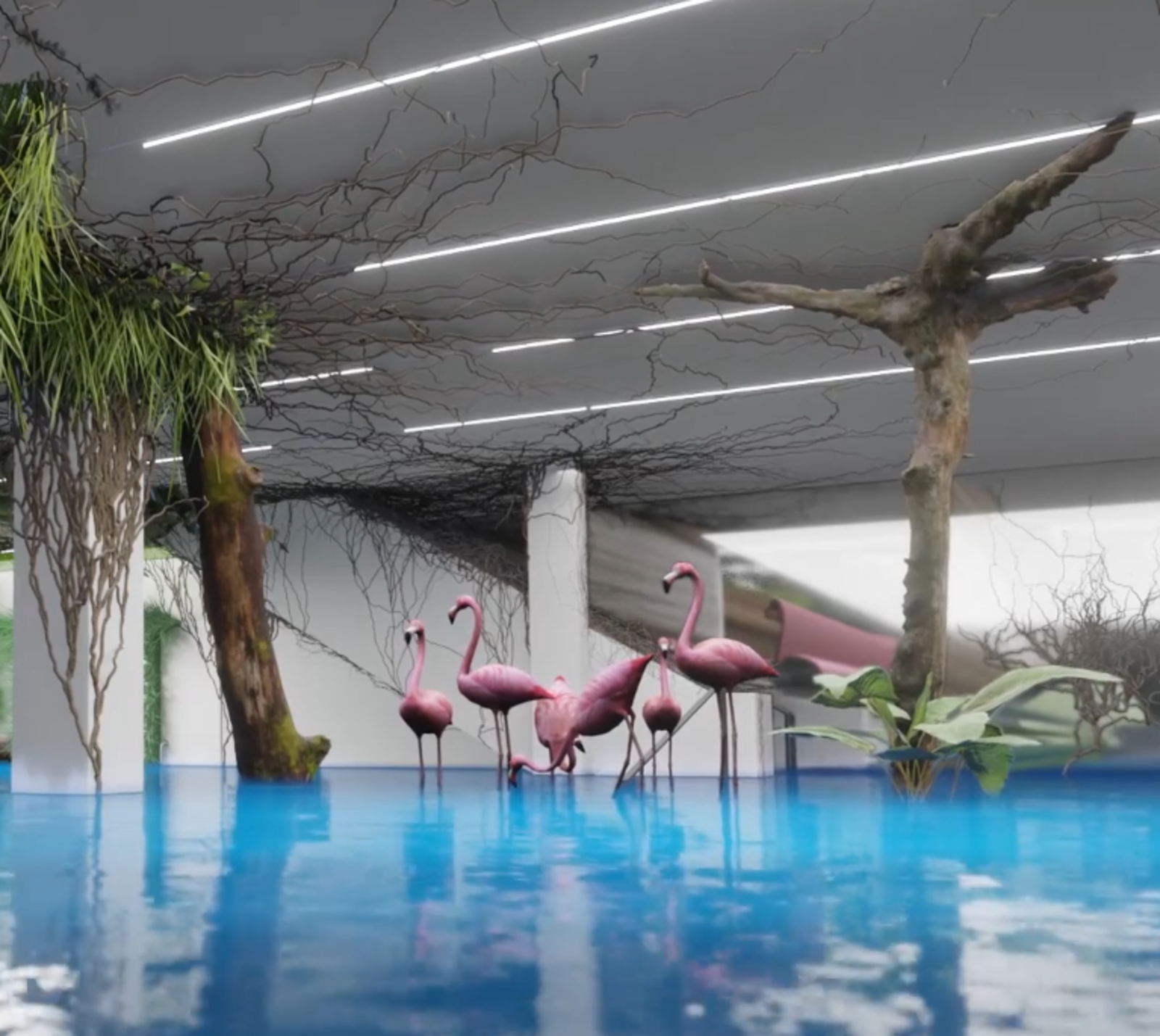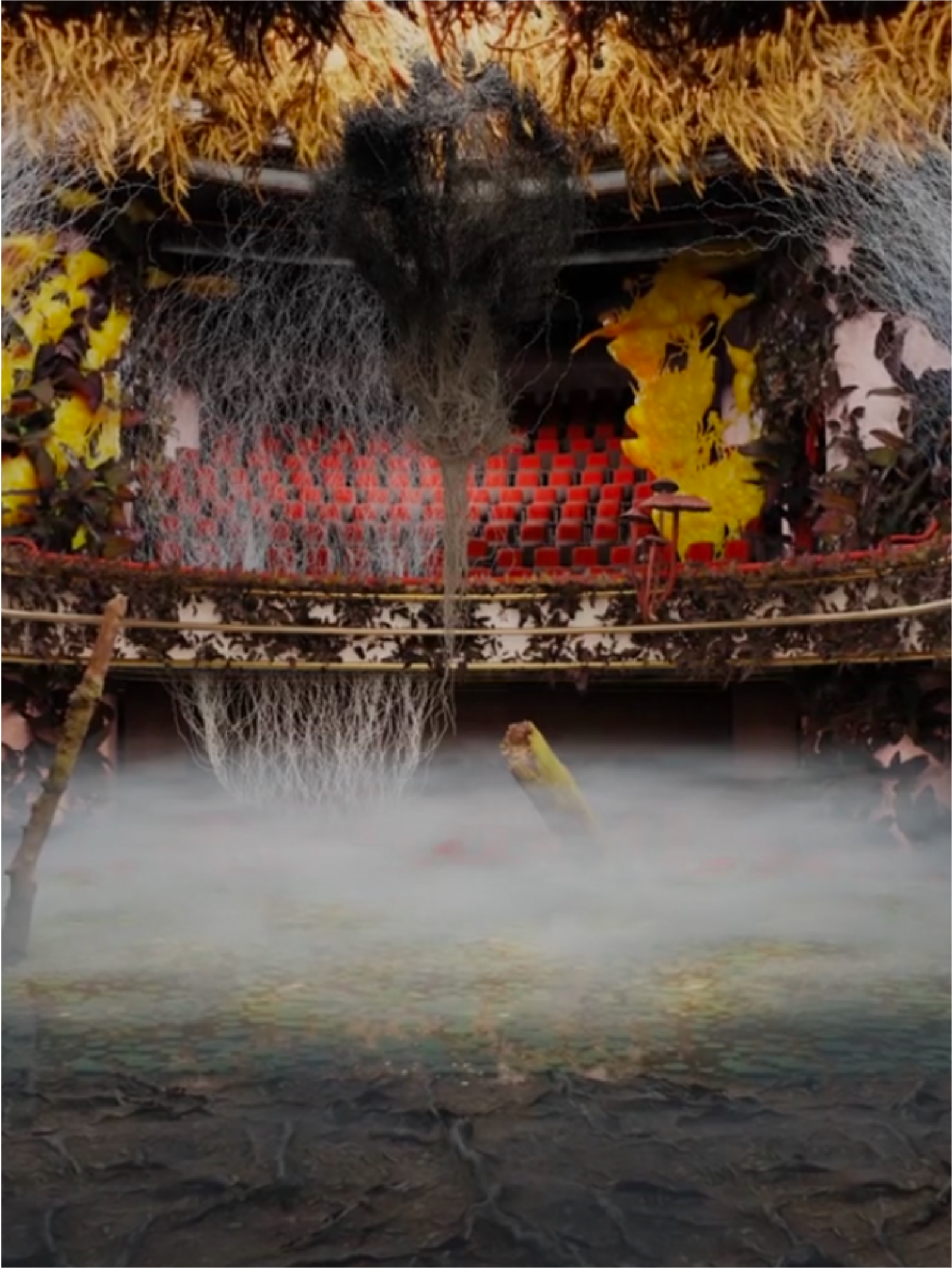Lockdown Theatre (3):
The emptiness of the empty theatres
by Augusto Corrieri
published on 28. April 2020
"I turn the light on in a dark room: of course, the lit room is no longer the dark room, I have lost it forever. And yet is this not precisely the same room? Is the dark room not, in fact, the real content of the lit room?..." (Giorgio Agamben)
Where to begin with the task of thinking through these closed darkened theatres, currently numbering in the hundreds across the globe? How to understand what these spaces are, and what they are for, now that their function is revoked, suspended, annulled? And what will the activity of theatre – live performance – now become, when the social assembly that it necessitates is more uncertain than ever?
Perhaps a beginning could be this: these empty theatres do not present an opportunity. No ground for speculation, for developing theories, for organizing a new project. Against 40 years of neoliberal market dogma, which has casually infiltrated and seized every crevice of space and time, flesh and thought; against the extraction of value, against strategies of recuperation, reframing, and repurposing, what these empty theatres announce is, quite simply, soberly, and with a directness that we’re no longer used to, that things have suddenly come to a halt.
Nothing to say, to do; nothing to think, to rethink. These empty theatres don’t present an opportunity.
This is our current horizon.
~
The empty theatres push back, forcing us back on ourselves, now halted, and rather lost for words.
How to stay with this impasse – this troubling nothingness, this emptiness – without rushing to fill it with purpose, use or value? Merely to register the discontinuance, the interruption.
I note down and look up a few words.
The Italian inoperosità.
The French désœuvrement.
The English inactivity, inertness, and idleness, from Old English idel, "empty, useless"; related to the Dutch ijdel "useless", and the German eitel "worthless".
And the English emptiness (from Old English ǣmetta, "leisure").
And vacuity, and vacancy, and vacation (from Latin vacat, "left empty").
I am sitting at my kitchen table, with a view on an unusually bright sunny square, here in the seaside city of Brighton, UK. Scattered around the table are a few books (coincidentally, all by Italian male authors), that I’ve been meaning to read for a while, and that I’m now finally finding the time to tackle, after several days in which the act of reading was near-impossible; the lockdown seems to both invite and deny the required concentration.
It is in a book by philosopher Giorgio Agamben that I find these key words, inoperosità and désœuvrement, both playing on the suspension of work and activity. And I am startled, upon carrying out a bit of research, to discover etymological affinities that, in hindsight, are perfectly obvious: a vacation is, quite literally, vacant time, a time left empty, free of work. Indeed, much of political and media theorist Franco Berardi’s dismantling of neoliberal work regimes often crystallises around a fairly simple and direct proposition: to reclaim time for ourselves and each other, a time that exceeds that currently allocated by sanctioned holidays, or the weekend of rest and recuperation from work; true leisure time is a time with no finality (it is not about "recharging", so as to better return to work). That such a thing as reclaimed leisure time seems near-impossible to imagine, let alone demand and put into practice, is a good example of the so-called psychopathology of cognitive capitalism, as described by Berardi.
Another small but startling discovery: our current economic and social predicament was foretold, as early as 1962 (almost 60 years ago), when the otherwise optimistic novelist and essayist Italo Calvino wrote the following diagnosis, in the attempt to identify who or what was invading private and public life:
It is the economic development that should have benefited us and to which we’re becoming enslaved; it is the tools for sharing our thoughts that seek to prevent us from thinking; it is the abundance of goods that instead of contentment produce the anxiousness of enforced consumption; it is the frenzy of construction that is forcing all our cherished places to take on a monstrous appearance; it is the false busyness of our days in which friendships, affections and loves wither like plants without air, and in which every exchange, with each other and with ourselves, is extinguished as soon as it begins. (Calvino 2016: 93-94)
In this state of affairs, I can better appreciate the graffiti that has been appearing around the globe during the lockdown: "We will not return to normality, for normality was the problem".
~
How can we even conceive of doing nothing? As a culture, we cannot tolerate the unused opportunity, the space left empty, the vacant interval.
Our inability to conceive of emptiness – empty time, empty space – was recently exemplified by a New York Times article that featured arresting photographs of streets and squares, now entirely free of people because of the lockdown. Entitled "The Great Empty", the article’s photographs might be dubbed, as has become fashionable in recent years, "ruin porn": the invitation to the viewer is to revel in stunning images of abandoned places, stripped of their use and now slowly decaying, hosts to nonhuman critters and vegetation; this is emptiness recovered and repackaged as article for consumption.
What to say when confronted by scenes of familiar urban sites suddenly rendered vacant?
The journalist clearly finds the words, declaring: "Emptiness proliferates like the virus". Emptiness, it would seem, is a disease, and the absence of people immediately renders streets idle and worthless (no matter that so many of these urban sites might be unwelcoming, unsustainable or unliveable at the best of times). The article ends by acknowledging the "beauty" of abandonment, and by re-affirming, as if it wasn’t clear enough, the all-too-human centrality of human bodies: the photographs, concludes the journalist, "evoke the romance of ruins. Beauty entails something else. It is something we bestow. It will be the moment we return."
A kind of sickly-sweet humanist nostalgia is played out here, insisting that the only political choice is between life-as-we-know-it, or a deathly emptiness. Times Square full, or Times Square empty. There is no other alternative.
I don’t want to return. I want to find better, nuanced ways of dwelling in the inoperosità.
~
A good example of the way we abhor emptiness and futility is the framing around meditation and mindfulness. Meditation, so we are told, is "good" for us: it can improve our mental health and immune system, it can help to reduce stress, cope with anxiety, etc. The act of sitting with no aim or intention acquires a positive value and use; thus appropriated, even the spiritual practice of emptiness becomes "full".
Musing on the idea of peace, Agamben asks us to conceive of it not as the opposite of war (since this merely casts peace as an eventual return to war). Researching the Indo-European etymologies of the word pax (peace), the philosopher finds a convergence "towards the semantic sphere of emptiness and the absence of purpose" (Agamben 2002 [1985]: 63). Instead of recognition (in a sign, an image), Agamben proposes that peace occurs by inhabiting non-recognition, "where all signs would already be carried out and muffled" (ibid). It is, he proposes, a space of darkness, of disorientation, and patience: "this is the sky entirely free of humanity" (64).
Perhaps the empty theatre offers this sky. But if so, it’s an offer we cannot take up. If we do, there is every chance we will end up reproducing the usual "fullness", the alluring blank page on which to reinscribe humanist ideals that were, of course, never erased: "the moment we return..." Hence the effort to not claim it, appropriate it, speculate on it, and to defer any pronouncements. At least, for the time being.
I was asked to write about a potential future for theatre in a time of viral crisis. Instead I find myself, like so many thousands, needing to learn, or re-learn, how to be with nothing, with empty time, as difficult and senseless as this might be.
To be still, to do only what’s needed, to do nothing. As much as possible, to try and lessen the suffering of other beings. Perhaps this, also, is the empty theatre.
Sources
Giorgio Agamben: L’idea della Prosa (Macerata: Quodlibet), 2002 (1985).
Giorgio Agamben: Studiolo (Torino: Einaudi), 2019.
Franco Bifo Berardi: Precarious Rhapsody: Semiocapitalism and the pathologies of the post-alpha generation (London: Minor compositions), 2009.
Italo Calvino: Una Pietra Sopra: Discorsi di Letteratura e Società (Torino: Mondadori), 2016 (1962).
Michael Kimmelan: "The Great Empty", The New York Times, 3rd March 2020.


